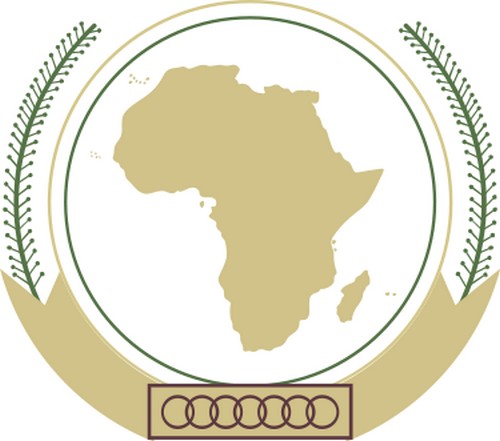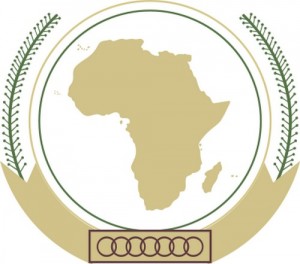To:
Commissioner Kayitesi Zainabo Sylvie, Chairperson, WGC;
Commissioner Reine Alapini-Gansou, Member, WGC;
Commissioner Pacifique Manirakiza, Member, WGC;
Dr Mary Maboreke, Secretary to the African Commission, Member, WGC;
Re: Welcoming Creating of WGC, Reiterating Litigants Concerns on the Protective Mandate, Request for a Meeting at the 10th Extra-Ordinary Session (Feb 21-Mar 1 2012)
We, litigants before the African Commission on Human and Peoples’ Rights, warmly welcome the creation of the Working Group on Communications by the African Commission. This move is a demonstration of the African Commission’s commitment to create the structures that will facilitate the expeditious consideration of communications and strengthen the protective mandate of the African Commission. We congratulate the commissioners and secretariat staff appointed to this Working Group and wish to assure the Working Group of our help and commitment.
We wish, in this regard, to draw attention to the Joint Letter of Litigants to the African Commission, dated June 14 2011. This letter aimed at expressing our concerns at the state of protective mandate characterised by:
- undue delay in communication consideration,
- almost non-existent access to administrative information from the African Commission as to the status of communication consideration,
- little transfer of cases to the African Court,
- challenges posed by the 2010 Rules of Procedure.
To these salient concerns, we now add an increasing concern over the up to two year delays in the granting of provisional measures which by their very nature are urgent and their absence exposes victims of human rights abuses to irreparable damage. In some instances victims have also been exposed to further violations of their fundamental rights and freedoms as those responsible continue to act with impunity.
In the June 14 2011 Joint Letter, we elaborated our deepest concern, recalled previous statements made by ourselves during past Ordinary Sessions of the Commission, and most importantly, made 6 recommendations, and finally called on the African Commission to urgently convene a meeting with us as provided for in Article 2 of the Resolution Granting Observer Status to NGOs.
We seek to remind this honourable Working Group that we have not, to date, received any response concerning the letter.
We, the 23 signatories to the June 14 2011 Joint Letter, similarly signatories to this present one, and others joining us, wish to reiterate our recommendations, annexed here.
In particular, we underline the very urgent need for:
- a causelist, publicly distributed before Commission sessions, as is the practice with other bodies exercising judicial mandate, and,
- a meeting between this honourable Working Group and litigants, to which state parties should be equally invited as respondents in the communications procedure.
We kindly propose that a first meeting between litigants and the Working Group be held during the 10th Extra-Ordinary Session scheduled for 21st February and 1st March 2012, to allow the litigants to appraise this honourable Working Group on the extent of our concerns and together propose priority areas of actions that can be undertaken to redress the situation.
We once again reiterate our commitment to work with this honourable Working Group to ensure that the remedies that victims of human rights abuses in Africa seek are availed to them and that the African human rights system fulfils its potential.
Signed:
African Centre for Justice and Peace Studies (ACJPS)
Article 19
Cairo Institute for Human Rights Studies (CIHRS)
Centre for Human Rights, University of Pretoria
Collectif des Familles de Disparus en Algérie (CFDA)
East and Horn of Africa Human Rights Defenders Project (EHAHRDP)
Egyptian Initiative for Personal Rights (EIPR)
Fédération Internationale de l’Action des Chrétiens pour l’Abolition de la Torture (FIACAT)
Federation of Women Lawyers-Kenya (FIDA-Kenya)
FIDH (International Federation for Human Rights)
Human Rights Law Service (HURILAWS)
Independent Medico Legal Unit (IMLU)
Institute for Human Rights and Development in Africa (IHRDA)
International Centre for the Legal Protection of Human Rights (INTERIGHTS)
Media Institute for Southern Africa (MISA)
Minority Rights Group International (MRG)
Nord-Sud XXI
Open Society Initiative for Southern Africa (OSISA)
Organisation mondiale contre la torture (OMCT)
REDRESS
Socio-Economic Rights and Accountability Project (SERAP)
West African Human Rights Defenders Network (WAHRDN)
Zimbabwe Exiles Forum
Zimbabwe Human Rights NGO Forum
Zimbabwe Lawyers for Human Rights (ZLHR)
Annex: Recommendations of June 14 2011 Joint Letter
“While reaffirming our commitment to cooperation, we urge the African Commission to take stock of the shortcomings in its protection mandate and following from that to:
- Allocate equal time during ordinary sessions to the two mandates: promotional and protective;
- Commit itself to handling a specific number of communications per session, and concretise this by publishing beforehand a cause list, as municipal judicial bodies do, indicating which case will be heard and when;
- Taking inspiration from the new practice of the African Committee of Experts on the Rights and Welfare of the Child of announcing a ruling on communication consideration at the end of its session while withholding the full decision which details measures taken under the Charter to fulfil the confidentiality requirements[1];
- Continue taking appropriate steps to eliminate the unacceptable backlog of communications;
- Grant appropriate priority to referral of eligible cases/communications to the African Court on Human and Peoples’ Rights, recognising that to a great extent the Court is dependent on cases from the Commission, at least in respect of states that have not made a 34(6) declaration, thus making the effective handling by the Commission of its protective mandate even more imperative;
- Ensure parties have access to information as to the status of their complaints in a timely fashion, particularly through publishing a list of cases before and after each session indicating the status of each case.
In conclusion, we, litigants before the African Commission, pursuant to section 2 of the Resolution on the Criteria for Granting Enjoying Observer Status to Non-Governmental Organisations Working in the Field of Human Rights with the African Commission on Human and Peoples’ Rights, appeal for a meeting at the earliest possible convenience, to discuss the issues raised in this letter and other matters related to the protection mandate of the Commission.”
Share this Post


